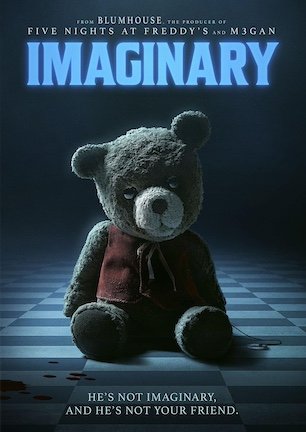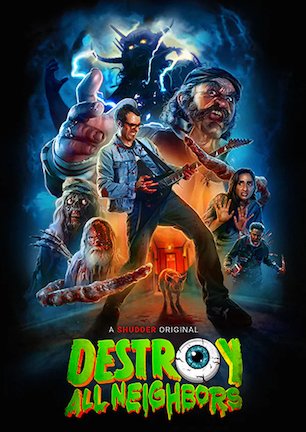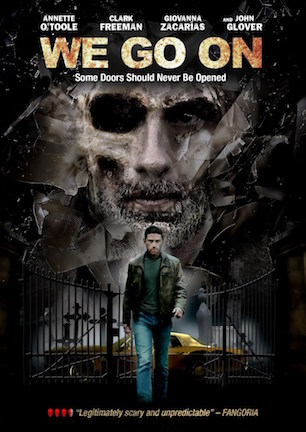Studio: A24
Director: Ari Aster
Writer: Ari Aster
Producer: Patrik Andersson, Lars Knudsen
Stars: Florence Pugh, Jack Reynor, William Jackson Harper, Vilhelm Blomgren, Ellora Torchia, Archie Madekwe, Will Poulter
Review Score:
Summary:
A troubled couple travels to Sweden for a celebratory midsummer festival only to end up in the grip of a strange pagan commune.
Review:
In his unique case, two films doesn’t seem too early to conclude that writer/director Ari Aster excels at producing polarizing projects. If I didn’t believe it to be beneath an artist of his imagination, intellect, or integrity, I might even muse Aster delights in deliberately trolling “it’s not horror!” TruFans who exhaustingly reduce his “adore it or abhor it” aesthetic into supposed evidence of overhyped boredom.
Few criticisms of criticisms are as patronizing as, “you just didn’t get it.” Nevertheless, I find myself bemusedly shaking my head at hastily downturned thumbs dismissively equating “Midsommar’s” patient pacing with “nothing happens” dullness. Aster’s devils really are in the details. When you adjust your mindset to consider why a certain shot lingers a long time or why a seemingly inconsequential scene depicts something superficially mundane, you’re better conditioned to appreciate how skillfully Aster structures each audiovisual element in his cinematic storytelling vocabulary.
Ari Aster accurately describes “Midsommar” as “a breakup movie dressed in the clothes of a folk horror film.” Anthropology grad student Christian, played with explicitly vague vacancy by Jack Reynor, puts the minus sign on the core couple’s battery. Florence Pugh provides the plus sign in their disengaged relationship, whose fundamental issues are as unaddressed as they are unspoken, as Christian’s hazy-headed girlfriend Dani.
Our introduction to Dani gives us the first of several spectacular showcases for Pugh’s incredibly affective, emotionally exposed performance. Dani’s concern that she leans too hard on Christian’s skin deep support, potentially pushing him further away, is outweighed by the stress of a troublingly cryptic email from her bipolar sister Terri. Dani considers the name in her Contacts list carefully before finally calling Christian for comfort.
For the next two and a half minutes, the camera frames Dani in a static close-up as she fights tears and wipes sniffles with her sweater sleeve. She’s veiling her breakdown from her boyfriend, but not from voyeuristic viewers. Pugh fantastically wears two faces at once, not for the last time in the film, through a terrific juxtaposition of the truth in her expression versus the hollow words Christian receives. Playing the type of person who reflexively blames herself for her boyfriend forgetting her birthday (she didn’t remind him), Pugh expertly flips between intuitively assertive and obliviously ashamed as her character’s conscious mind struggles for clarity even though she clearly feels safer inside a psychologically fabricated reality.
Aster continues establishing information with easy to overlook creativity. Take the next sequence as an excellent example.
Still worried what her unstable sister Terri might do, Dani takes a call from an unknown number. Cut to Christian and his grad school bros mulling over Christian’s inability to do what needs to be done regarding his failing romance. Christian doesn’t want to take Dani’s subsequent call when her name shows up on his phone, but he does anyway. We stay with Christian as he hears only Dani’s gut-wrenching, guttural howls wailing from the other end.
We already realize what happened, yet the camera next takes us on a tragic tour of Dani’s childhood home. Past zippering body bags and a long length of hose connecting the garage to Terri’s duct-taped mouth, the shot settles on Dani’s unread messages in Terri’s email inbox. After a shot of Christian cradling Dani on her couch, the camera next moves past the couple to stop on several seconds of snow falling outside a window.
What Aster chooses to do with this unsettling sequence reveals as much as what he doesn’t do. Straightforward storyboards would simply dial into Dani receiving the shocking news of her sister’s murder-suicide. Instead, Aster specifies that the consequence on Christian’s relationship with her should receive as much or more attention than Dani’s reaction. Aster also spares us from suffering with Dani directly since her awful cries convey complete horror without words anyway.
Antsy audiences may wonder, “why does this take so long?” But Aster intentionally allots the amount of time he deems appropriate for us to process what has just been communicated. Masterfully, he does it without dwelling on the graphic imagery component, giving our mind a grimly grey slate of opening title placement to chew on while the darkened atmosphere settles.
The season evolves from winter to summer, which we know not from “Six Months Later” text, but thanks to a simple cut from the snowstorm to a sunny sky. In an uncomfortable group conversation at a party, Dani learns Christian plans on joining his pals for a thesis research trip in remote Swedish countryside. “I mean, we were talking about it,” Christian says to downplay his commitment so as not to offend Dani’s already nonplussed reaction. “That’s if we even go,” Christian adds to further deflect Dani’s disappointment that he didn’t tell her.
Looking for a way out of their ensuing confrontation, Christian invites Dani to join everyone in Sweden. He assures his friends Dani won’t accept the offer but naturally, she does.
Awkwardness extends to a follow-up scene where Dani discusses the trip with Pelle, whose commune is where they’re heading for nine days of traditional midsummer customs. Pelle appears happy to add Dani. Christian’s research rival Josh meanwhile, unobtrusively removes himself from the smiling chitchat to heat up his coffee. Dani briefly turns her head to note the sound of Josh normally closing the microwave door before turning back to engage excitedly with Pelle.
This moment means something. With this outwardly trivial exchange, “Midsommar” shows Dani as casually aware of others in Christian’s friend circle, but not truly considering them. She knows they don’t really want her to join them, yet she chooses the optional truth she would rather believe.
There’s nothing cursory about these characterizations. “Midsommar” presents these people as practiced at deluding themselves to avoid reconciling inconvenient facts. This justifies later behavior when they often sense something askew, but decide to continue staying in an alien place that doesn’t always feel welcoming because it’s easier, exactly like Dani and Christian’s relationship.
“Midsommar” again uses visually harrowing staging to quite literally flip the film and hypnotize us with dreamy disorientation. A bathroom breakdown becomes an airplane lavatory panic attack. After pushing past Christian and Dani’s seats, the camera settles on clouds outside before shaking violently from turbulence. This harbinger of instability segues into another serpentine shot that swirls “Silent Hill”-style until the group’s car continues its drive upside-down.
Very few genre filmmakers, particularly this early in their careers, are capable of creating such fully transportive transitions. Out of the ordinary and into a sideways slice of Sweden filled with striking symbols and starkly strange sights, “Midsommar” morphs into a distinct vision. Independent of how anyone responds to the slow setup, trickling tempo, or plot points of arguable importance, a nuanced nightmare unfolds onscreen that reflects confident artistic expression.
From the bright pop of a yellow temple to the tassled facemask of a commune elder, every detail becomes another opportunity for production design to contribute another curiosity. When it comes time for the commune to select a random villager, the process involves a homemade bingo bin spitting out a runic ball that rolls down a spiral slide. Any number of easier options exist to illustrate drawing lots. But of course the film builds something bizarre to keep the immersive illusion entrancing.
Even traditional trappings are filmed untraditionally. Ari Aster puts multiple “Texas Chainsaw Massacre” references in plain sight during one scene, which many may not immediately notice because of the movie’s arthouse veneer. A connect-the-dots corpse discovery sequence similarly echoes slasher cinema influences without looking like a slasher movie itself. “Midsommar” more often hides its sinister swaths as mere suggestions induced by subtly creeping dread.
Even the cultists come cut from deceptively copacetic cloth. Though no less of a threat, their disarming demeanors are an alluringly far cry from the blank faced, brainwashed crazies that Manson movies have set as the norm.
“Midsommar” divides viewers into Danis and Christians. For Christians, “Midsommar’s” tone, which emphasizes the quiet in disquieting, won’t provide plentiful tangible viscera to entice seeing past simple surfaces at thoughtful artistry moving the gears underneath. The movie understandably doesn’t appeal to a wide range of attention spans. Unripe side stories such as Christian and Josh’s pissing contest over similar research subjects counts as one example distraction that doesn’t always reward investment in the slow burn.
Danis meanwhile, may find macabre meaning where Christians aren’t incentivized to look, which is essentially every nook and cranny where some symbol slips in with subtext. “Midsommar” takes “Hereditary’s” grounded human drama out of suburbia, but transposes those relatable roots to an equally menacing milieu that becomes a pinnacle presentation of “broad daylight” horror.
Like taking sides in Christian and Dani’s relationship, your slant on the movie comes down completely to personal perspective. The only wrong takes are those that dismiss views from the other side of the aisle.
NOTE: I screened the 2 hours and 27 minutes Theatrical Cut and the 2 hours and 50 minutes Director’s Cut. I don’t know that I can definitively declare one significantly superior to the other. The Director’s Cut lengthens several scenes. E.g. in the TC, Christian merely tells his friends he invited Dani to Sweden whereas we actually see him do so in the DC. Christian even blames Dani for ruining the “surprise” by claiming he was actually going to ask her before she got pushy about it. The major difference I noticed was the addition of another ritual, which is a nighttime play that pretends to sacrifice a child, that leads to a big blowup regarding Dani’s insistence on leaving and Christian’s refusal to do so.
Basically, the Director’s Cut shows more of the decaying dynamic between the main duo. It certainly won’t improve your experience if you tuned out on the Theatrical Cut. But if you found fascination in the relationship’s arc, the Director’s Cut gives the couple more opportunities to interact, though I wouldn’t say any of that material is critically essential.
Review Score: 75







How someone who sees this in a theater or without a notepad can keep everyone and their relationships straight, I have no idea.